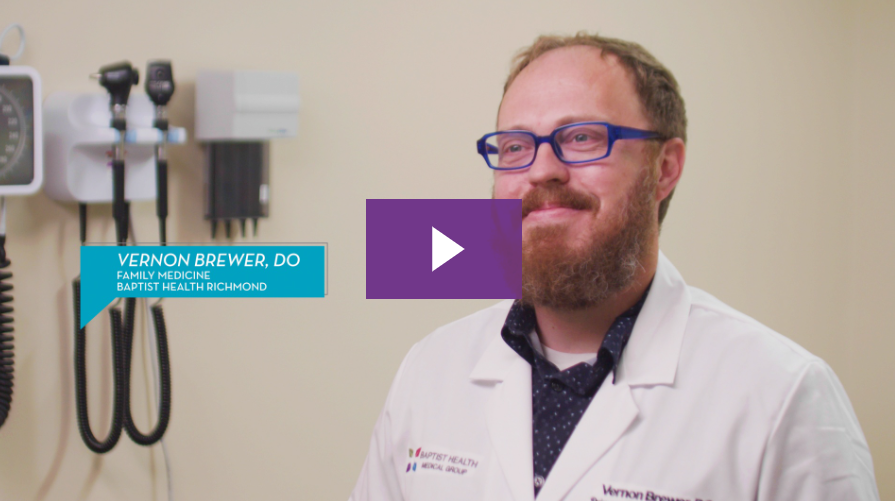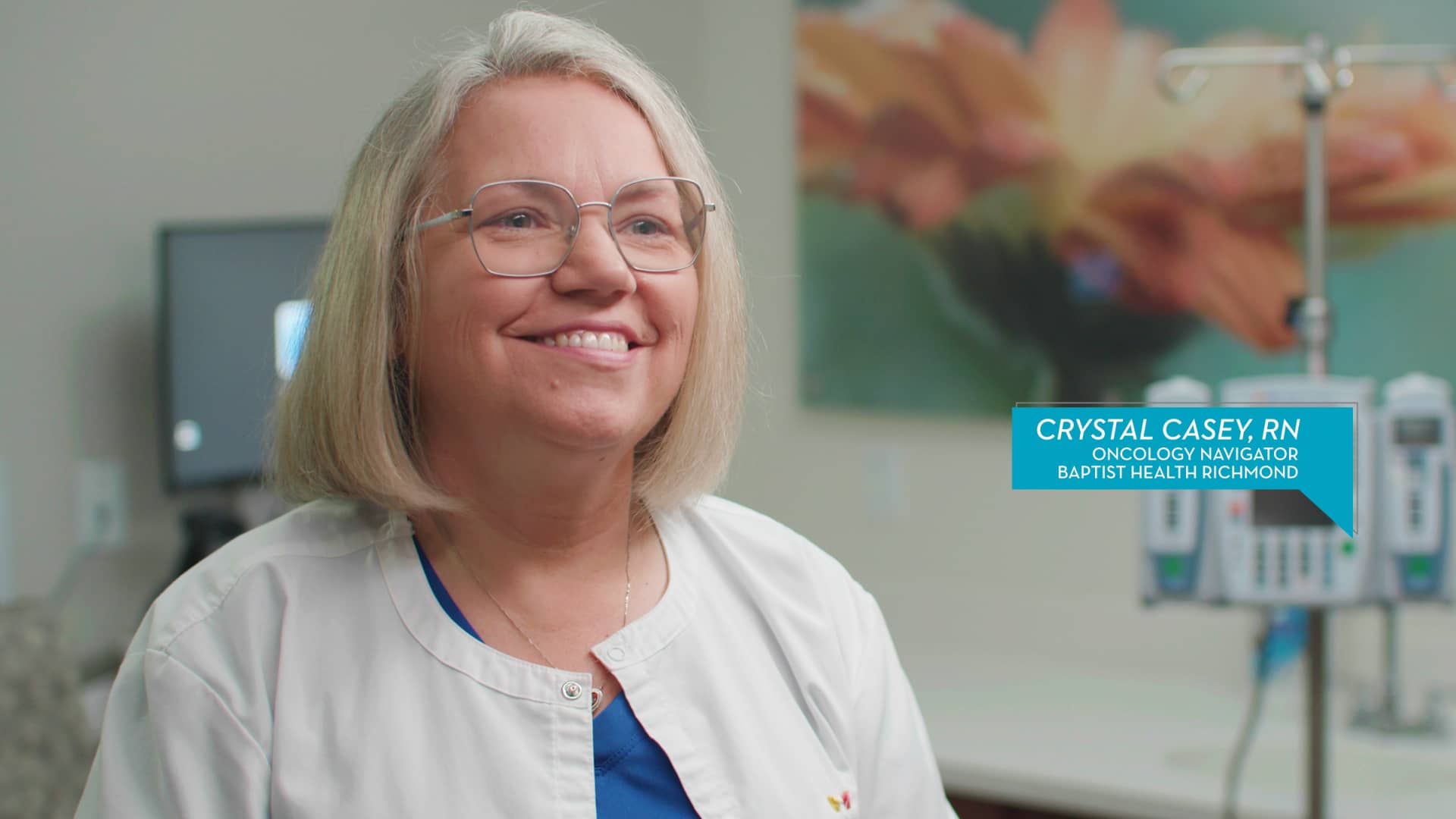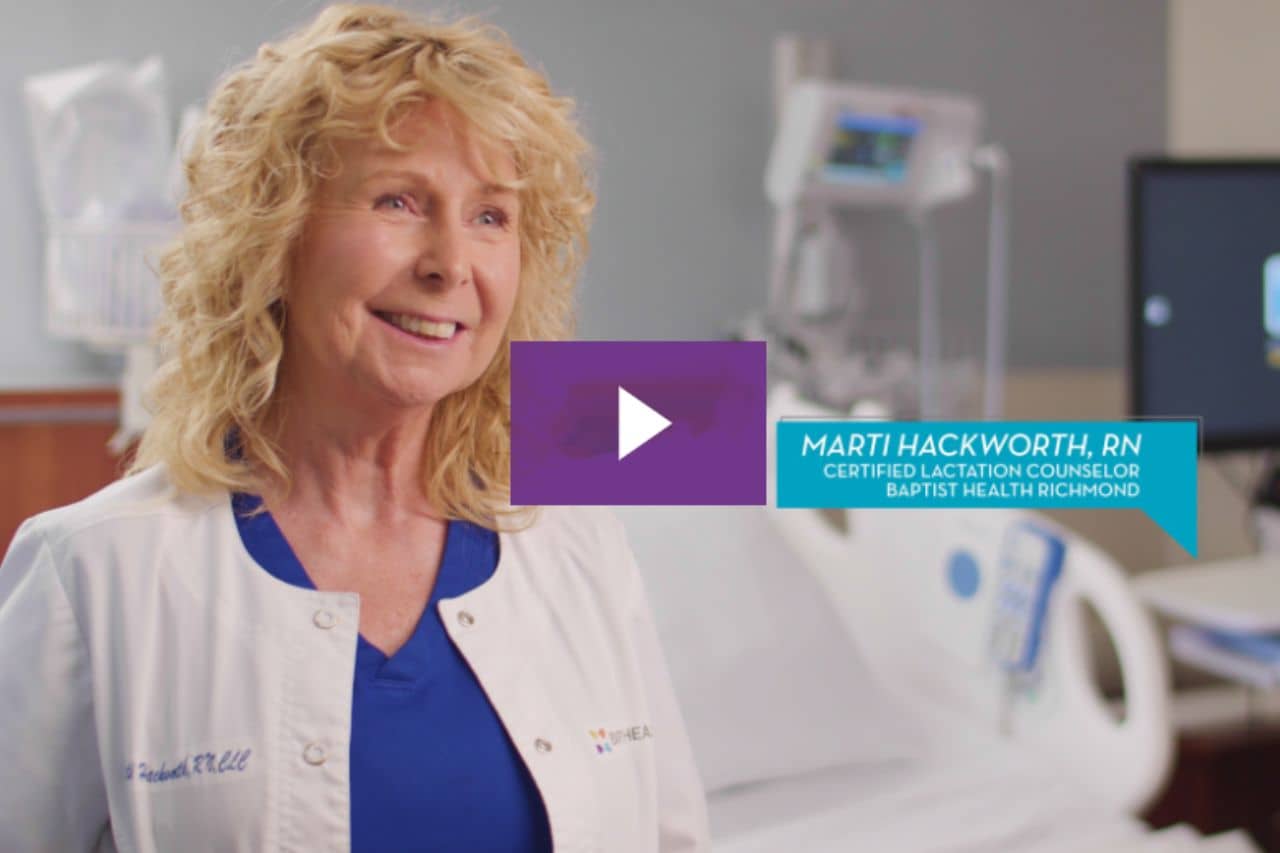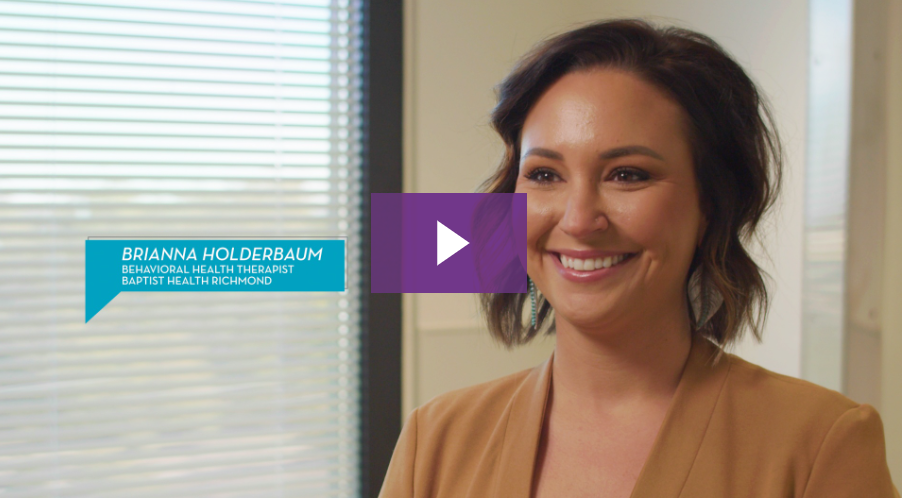Advanced Care Planning Options in Richmond, KY

Planning for End-of-Life Care Healthtalks Transcript:
Vernon Brewer, DO, Family Medicine
Baptist Health Richmond
Vernon Brewer, DO: End-of-life care is definitely a hard conversation, but it's also a very good conversation. We can talk about being able to wrap up things in your life that you want to leave [as a] legacy with your loved ones, and [then] talk to them.
The planning for end of life is important because it takes the burden off loved ones. Just knowing what the patient wants is extremely important. It allows them to spend that time with their loved ones, as opposed to worrying, looking for paperwork, or trying to discuss what they would want in that situation.
There are different kinds of forms that you can fill out to help give your loved one some guidance. The forms could be as simple as naming somebody you want to be your decision-maker, leaving it at that, and trusting that person of your choosing knows what your wishes are and will make decisions based on your life values.
The MOST [medical orders for scope of treatment] form is a form that we [have] used in Kentucky for the last several years. It gives a lot of details about what the patient wants. The patient can sit down with their provider and go through and say, “I want IV fluids, I want or don't want to be brought back to the hospital, or I want to be resuscitated or don't want to be resuscitated.”
As a physician, being able to help facilitate those conversations and make the journey as peaceful and as good as it can be [at the] end of life can be a beautiful process as well.



